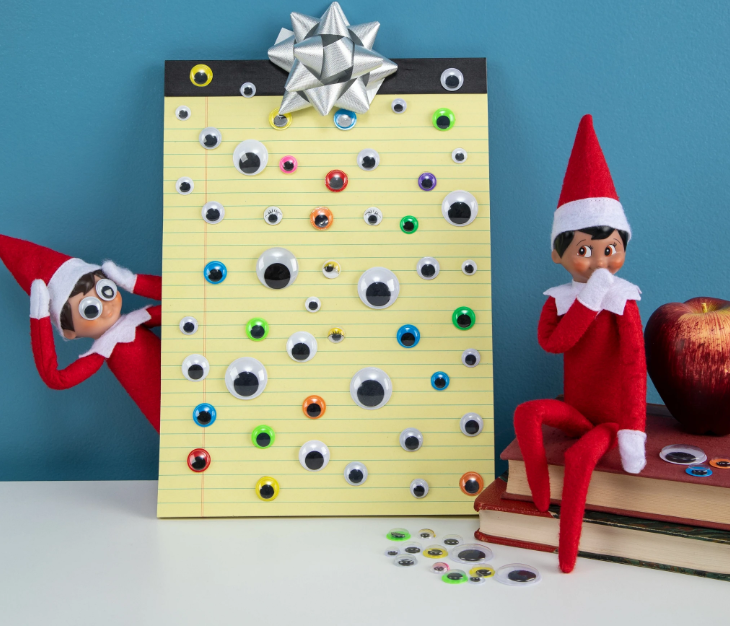
Oh, great. Another thing to worry about at Christmas. Putting an elf on a shelf. Photo: LumiStella.
On the screen, the young woman looks slightly ruffled, her cheeks red and her tone clipped.
“Some of you think I’m going to traumatise my daughter for buying all of her Christmas presents for under $200,” she begins. “So let me show you everything I got for her.”
She proceeds to pull out item after item – toys, clothes, books – that she’s managed to purchase within her budget for her seven-year-old daughter and then goes to lengths to clarify that all of this doesn’t include the stocking, which will be paid for separately.
According to the comments, she’s a bad mother, though – scrimping at Christmas is just mean, apparently.
Watching this from my childless haven (albeit for only a few more months), I balked.
Isn’t $200 a perfectly reasonable amount to spend on a child for Christmas?
I kept scrolling and the Christmas burdens on parents just continued.
First, there’s ‘Elf on a Shelf’ and the extreme lengths parents are going to to keep the magic alive with more elaborate set-ups of the stuffed toy’s antics. Then there are the presents – sometimes dozens of gifts for individual children, and of a scale that seems to extend into thousands of dollars. And then, of course, there’s the day itself. The food, the treats, the decorations.
I’ll be honest, as someone who didn’t grow up celebrating Christmas, it seems like a lot.
I love the idea of pulling together a special experience for the family, and I also know that a lot of people genuinely love going all out for Christmas. There is a lot of creativity and joy to be had in the cooking and the decorating and even the gift-buying.
But it’s the latter that gives me pause.
To me, spending a few hundred dollars on each kid feels perfectly reasonable. A few individual gifts, some stocking fillers, surely that’s enough? But from the online reaction to that one social media post and the effort made by friends, I might be in the minority here.
Let’s put to one side the fact that, for many families, $200 is a lot of money. I’m sure many, many parents would love to be able to spend more on their kids and simply can’t due to their financial circumstances. So there’s privilege in having Christmas presents at all.
But even if money is no object, is it really good for your kids to spend thousands and shower them with gifts at Christmas? After a while, surely there are diminishing returns in the joy they feel – we’ve all seen kids glaze over while opening presents, tossing each to the side while grabbing the next one, unable to absorb each item because they’re so overwhelmed.
I didn’t grow up with Christmas, but birthdays were always a big deal in my family, even though we didn’t have a lot of money when I was a kid. So we typically got one or two presents from our parents, and I doubt they were anything over $50 at the time, but we cherished them. I can still remember most of the presents I got up to around 14 when our finances improved and our gifts became more expensive and ubiquitous. I don’t remember the flashy presents of those later years, but that one Elmo toy my mum got me when I was six, which I remember her agonising over because it wasn’t in the budget – that one I will love forever.
Gifts can be a wonderful way to celebrate with kids and to show them you love them. But does giving excessive gifts err into a morally grey area when teaching kids lessons about appreciation and valuing resources?
As I stare down the barrel of parenthood, having recently been asked if we’re going to ‘do’ Christmas with our kid, I’m trying to work out just how far I want to go down this rabbit hole. I don’t want to be a Grinch, but at the same time, at what point does it stop being merry and start to be more of a capitalist ritual of excess?





















